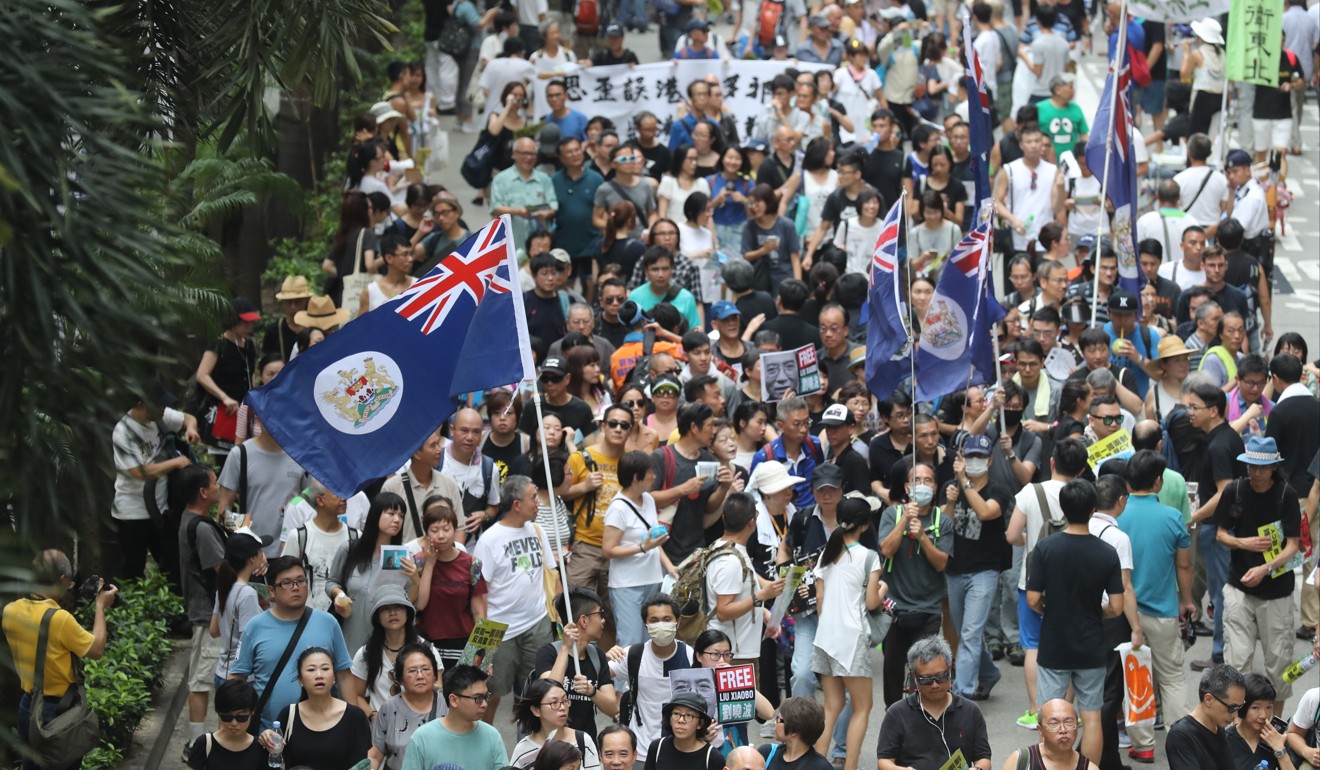
Hong Kong leader Carrie Lam welcomes more ‘peaceful’ atmosphere in city, but says time still not right for political reform
Almost six months into her term, chief executive says while turnouts at protests are down, it was not clear if this was a result of her administration’s work
Hong Kong’s leader has said she was encouraged by a more “peaceful” social atmosphere in the city and a lower turnout at protests, since she took the helm as chief executive almost half a year ago.
Carrie Lam Cheng Yuet-ngor however said it was difficult to judge if the stability was a result of her administration’s handiwork or that people were fatigued in general.
Despite the stability in recent months, Lam also stressed it was still not the right time to relaunch a move for political reform.
In an interview with RTHK that aired on Saturday, when asked if she felt she had made any progress in mending the social divide according to her election pledge, Lam said she felt society as a whole had “calmed down”.
“After almost half a year of my term, we feel that the society seems to be more stable, the quarrelling seems to have quietened down, and even the turnout at protests has gone down,” Lam said.
Organisers put the turnout at a two-year low of about 60,000.

Tens of thousands took to the streets on two other occasions: on August 20 and on October 1 during the National Day holiday to condemn the jailing of 16 young pro-democracy activists.
She however said it was hard to judge whether the respite was thanks to the work of the new administration or whether Hong Kong people were fatigued.
Nevertheless, Lam said her team were “encouraged” by the shift in atmosphere.
The five-year term of Lam’s predecessor, Leung Chun-ying, was marred by pro-democracy sit-ins that lasted for 79 days, fuelling a bitter social divide.
Disqualified lawmaker ‘Long Hair’ Leung Kwok-hung seeks judicial review over changes to Legco rule book
Separately, speaking on the matter of relaunching political reform – a proposal to allow universal suffrage to elect the city’s leader – Lam said it was still not the right time.
“It is what we should push for, but it is also a matter of calculating whether it is possible. If we fail, I don’t think the public would support that we go from having a stable society and economy back to what it was like during the Occupy protests and back to a divided society,” she said.
She said it should happen when there were enough “favourable conditions”, citing a recent rift between the pan-democratic and pro-establishment camp which proved the timing was not right.
“The pan-democrats have not been happy with the changes in the rules of procedures in the Legislative Council, with some even saying that they would take revenge, this is definitely is not a favourable condition,” she said.
Lam said instead lawmakers should all “sit down together” for constructive dialogue on the issue.
Democratic Party chairman and legislator Wu Chi-wai said Lam was just merely being “selective”.
“On the one hand she says the social atmosphere is good, but on the other hand it’s not good enough for political reform. You can see she is just being selective with her descriptions based on what she wants to do and what she wants people to hear,” Wu said.
Wu urged Lam not to take what was “only a superficial situation” to mean that the general public supported her policies.
“She has to be careful not to take things at face value and think that she can push for any controversial policies, otherwise such social rifts will only resurface,” Wu said.

